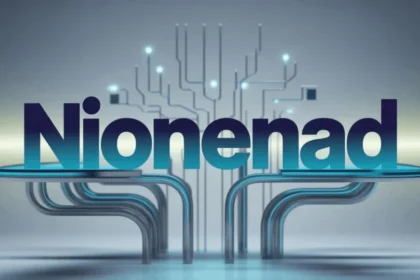The term anthropic status has gained increasing relevance in the 21st century as humanity confronts profound shifts in technology, society, and the natural world. It refers to the position, condition, and significance of human beings—individually and collectively—in relation to the forces shaping our existence. These forces include artificial intelligence, environmental transformation, global interdependence, and evolving concepts of identity and purpose.
To explore anthropic status is to ask fundamental questions: Who are we? What defines our value? What responsibilities do we bear? How do we adapt in a world where human abilities are no longer the sole driving force behind progress? This article examines the dimensions of anthropic status and why this concept matters deeply in the present moment.
The Foundations of Anthropic Status
At its core, anthropic status examines the position of humans in three broad contexts:
-
The Natural World – our ecological role and impact
-
The Technological Sphere – our relationship with machines, automation, and artificial intelligence
-
The Social and Ethical Domain – our identity, rights, and responsibilities within complex societies
These contexts shape how humans view themselves and how they are valued by the structures they create.
Historically, humans considered themselves central—masters of nature, inventors of tools, and builders of civilizations. But emerging global challenges and disruptive technologies are forcing a reevaluation of this long-standing view.
Anthropic Status in the Age of Artificial Intelligence
Few developments have impacted anthropic status as profoundly as artificial intelligence. For millennia, human intelligence has been the defining trait separating us from other species. Now, advanced AI systems challenge aspects of this uniqueness.
1. Changing Definitions of Intelligence
AI systems today perform tasks once considered exclusive to human cognition—language generation, analysis, prediction, creative composition, and even moral reasoning simulations. As a result:
-
Human intelligence is no longer the only form of complex problem-solving.
-
Creativity is no longer exclusively human.
-
Decision-making, once guided solely by human judgment, now often involves algorithmic assistance.
This shift forces humans to ask: If machines can replicate cognitive functions, what special role remains for humanity?
2. The Human-Machine Partnership
Anthropic status does not diminish due to AI—it transforms. Instead of being the sole creators of systems, humans increasingly become:
-
Supervisors of intelligence
-
Stewards of ethical responsibility
-
Designers of purpose and values
AI amplifies human capability, but also highlights the necessity of human guidance. Machines can calculate, predict, and generate patterns, but they cannot derive meaning or moral intention. Human relevance shifts from performing tasks to defining purpose.
3. Risks and Responsibilities
With technological power comes the risk of misuse. Anthropic status now includes obligations:
-
Ensuring AI serves humanity rather than replaces or harms it
-
Protecting human dignity in the face of automation
-
Creating frameworks for equitable access to the benefits of AI
-
Preserving humanity’s moral and emotional wisdom
In this new era, anthropic status expands to include guardianship of the digital world.
Anthropic Status and Environmental Realities
Humanity’s relationship with the natural world also shapes its anthropic status. Historically, humans saw themselves as dominators of the environment, bending nature to their will. Today, the consequences of environmental mismanagement—climate change, biodiversity loss, pollution—are forcing a humbler and more interdependent understanding.
1. Humans as Ecological Participants
Anthropic status increasingly recognizes that humans:
-
Are part of an interconnected ecosystem
-
Cannot survive without stable climates, fertile soils, and healthy oceans
-
Share responsibility for sustaining the biosphere
This shift reframes humanity not as conquerors of nature but as its caretakers.
2. Climate Change and Moral Weight
Environmental degradation gives anthropic status a moral dimension. Human actions have long-term consequences for the planet and future generations. Thus, humanity becomes accountable not only for itself but for:
-
Non-human life
-
Ecosystem balance
-
Planetary health
Anthropic status grows into an ethic of stewardship and responsibility.
Social Transformation and Human Identity
Beyond technology and ecology, anthropic status is shaped by evolving social dynamics.
1. Globalization and Shared Humanity
The world today is more interconnected than ever. Cultures, economies, and information flows blend into a global mosaic. This global interdependence forces a reinterpretation of what unites humans. Empathy, collaboration, and cultural respect become essential elements of anthropic status.
2. Redefining Worth and Contribution
Automation and shifting economies challenge traditional definitions of productivity and value. Anthropic status expands from economic output to include:
-
Emotional intelligence
-
Creativity and expression
-
Ethical decision-making
-
Community building
-
Personal resilience
Human worth is increasingly measured not in labor alone but in qualities machines cannot authentically replicate.
3. The Search for Purpose
As old systems of identity—profession, nationality, traditional roles—shift or dissolve, many people seek new anchors of meaning. Anthropic status becomes tied to:
-
Personal growth
-
Spiritual exploration
-
Social contribution
-
Philosophical reflection
The human journey becomes less about survival and more about understanding.
Ethical Dimensions of Anthropic Status
As humanity’s place changes, so do its ethical responsibilities. Several key issues emerge:
1. Preserving Human Dignity
No matter how powerful technology becomes, human life retains inherent worth. Anthropic status emphasizes dignity, fairness, and protection of rights.
2. Ensuring Equity in Technological Growth
Not all populations benefit equally from innovation. Anthropic status requires conscious efforts to reduce divides:
-
Digital inequality
-
Access to education
-
Healthcare disparities
-
Economic imbalances
Humanity strengthens when all people can participate in progress.
3. Balancing Innovation with Preservation
Progress must not come at the cost of human connection, community, or natural heritage. Anthropic status encourages balance—honoring tradition while embracing the future.
Anthropic Status as a Path Forward
Understanding anthropic status is not merely theoretical—it offers a roadmap for navigating the complexities of modern life.
1. Cultivating Human Strengths
As machines take on technical tasks, humans are free to develop uniquely human qualities:
-
Compassion
-
Creativity
-
Moral judgment
-
Wisdom
-
Imagination
These attributes define the future of anthropic relevance.
2. Building Meaningful Collaboration with Technology
Rather than competing with machines, humans can integrate them as partners, expanding horizons in science, medicine, education, and beyond.
3. Reconnecting with the Natural World
Environmental consciousness is central to humanity’s survival. Sustainable living becomes integral to anthropic identity.
4. Strengthening Community and Humanity
In a fragmented world, unity and empathy serve as guiding principles for the human role.
Conclusion: The Evolving Meaning of Being Human
Anthropic status is ultimately about understanding the evolving position of humanity in a world reshaped by forces we ourselves have created. It is a reminder that:
-
Humans remain central not because of physical strength or cognitive monopoly, but because of moral agency and creative purpose.
-
Technology challenges but also elevates our role.
-
Environmental realities demand humility and stewardship.
-
Social transformation pushes us toward deeper connection and broader understanding.
In embracing these changes, humanity does not lose its status—it redefines it. Anthropic status becomes a living concept, reflecting our capacity to adapt, innovate, and find meaning in an era of unprecedented change.





